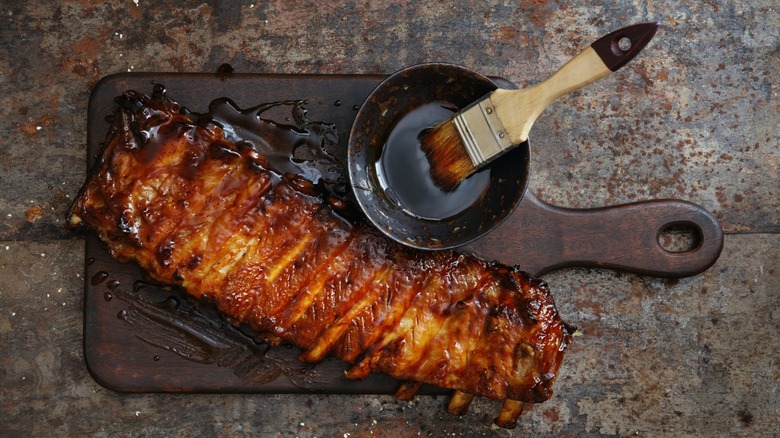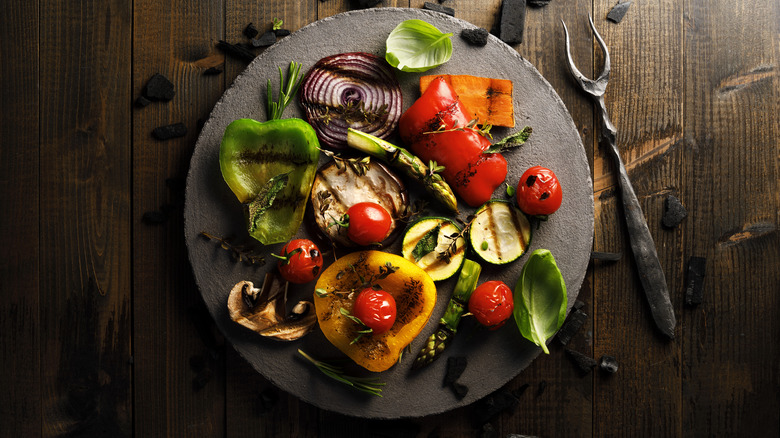The Ingredient Upgrade That Will Give Your Marinade A Smoky Flavor
Most marinades meant for different types of meat often include some combination of fat with salt and acid, although marinade ingredients also include acidic fruits like pineapple sometimes or a flavorful vegetable component like onion milk – which is what you get if you toss an onion in the blender. If you opt for a vegetable-based marinade, grilling the vegetables prior to puréeing them will lend some smoky flavor. (This, of course, involves you owning a barbecue grill and desiring to use it.)
It stands to reason that cooking over charcoal will produce the necessary smoke to make your food taste, well, smoky. However, you might be wondering if a gas grill can produce the same effect. The answer is maybe, depending on how you prep the vegetables.
The one thing that makes cooking on a gas grill smokier than cooking over a gas stove is the fact that melting fat drips down onto the heat source, thus producing smoke that then rises up to surround the food. Since vegetables tend to be fairly fat-free, if you have a gas grill then you may want to rub them with oil, butter, or bacon drippings before you start grilling. As long as you've got the grill set up, you might as well use it to cook the meat, too. And as long as it's got a little fat to it, you'll get an even smokier flavor on top of any notes from the grilled vegetable marinade you make.
Less labor-intensive ways to add smoky flavor
Grilling vegetables over an outdoor barbecue before blending them into a meat marinade is something you may not always have the time nor the resources to do — if you live in a high-rise with no yard or balcony, for example, grilling may well get you evicted, which is way too high of a price to pay no matter how tasty your meal may be. Luckily, there are easier, more apartment-friendly ways to achieve smokiness.
For one thing, you can always cook your vegetables (and meat) in a grill pan on the stove, which may — admittedly — result in more of a char than actual smoke. Many people often conflate the terms "charred" and "smoky," because the flavors do have similarities.
Yet another way you can incorporate smoky flavor into your marinade (whether vegetable-based or not) is to add liquid smoke, a seasoning that's made by condensing the smoke from burning wood. If this sounds too weirdly scientific to be appetizing, smoked paprika or chipotles make good liquid smoke substitutes, as do lapsang souchong tea leaves ground into a powder and either added to the marinade or used as a dry rub.

